In today’s digital marketplace, the ability to seamlessly communicate with customers across multiple platforms isn’t just a bonus—it’s a critical component of business success.
Unified communication strategy have reshaped how businesses connect with their audience, delivering not just messages but creating conversations that build lasting relationships. This strategic integration of SMS, WhatsApp, VOIP, and other channels doesn’t just meet customer expectations—it exceeds them, setting the stage for enhanced loyalty and increased revenue.
Why Unified Communication Strategy Are Essential for Today’s Businesses
Gone are the days when SMS was just for quick alerts and VOIP was a cheaper alternative for international calls. Today, customers expect to interact with businesses like they do with friends and family, using a variety of channels depending on convenience and context.
Here’s how embracing a cohesive communication strategy can profoundly impact your business operations and customer satisfaction.
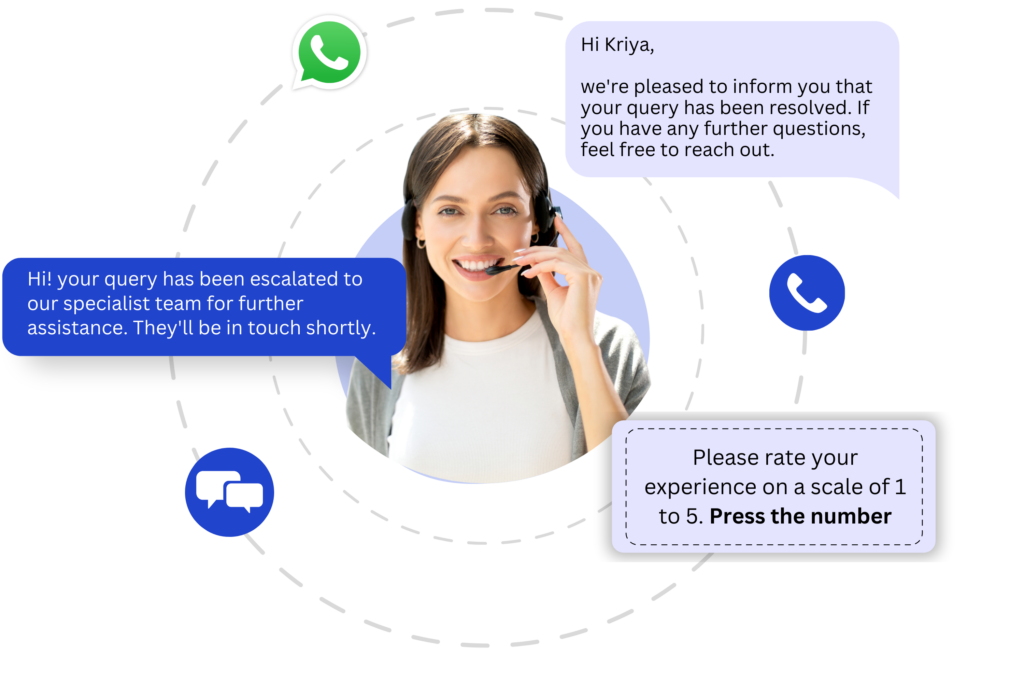
Enhanced Customer Experience
Customers today often choose brands based on the quality of communication. They favor businesses that provide personalised, timely interactions across all touch-points. By implementing a unified communication strategy, you ensure that whether a customer sends an SMS, makes a VOIP call, or sends a message through WhatsApp, they receive a uniform, high-quality experience. This consistency not only boosts satisfaction but also significantly increases the likelihood of repeat business and referrals.
Operational Efficiency
Integrating various communication methods streamlines internal processes. It eliminates the redundancies of using separate platforms for SMS, calls, and online messaging. This consolidation leads to reduced costs and improved response times, making your operations leaner and more agile. Furthermore, it simplifies training and system maintenance, as your team needs to learn and manage fewer systems.
Boosted Engagement Through Personalized Communication Strategy
Every customer interaction offers a chance to gather insights. Unified communication strategy enable you to leverage these data points effectively, tailoring conversations to meet the specific needs and preferences of each customer.
For instance, if data shows that a customer prefers WhatsApp for quick inquiries but appreciates follow-up calls via VOIP for detailed discussions, you can customise your communication strategy accordingly. This level of personalization not only enhances customer engagement but also drives conversions.
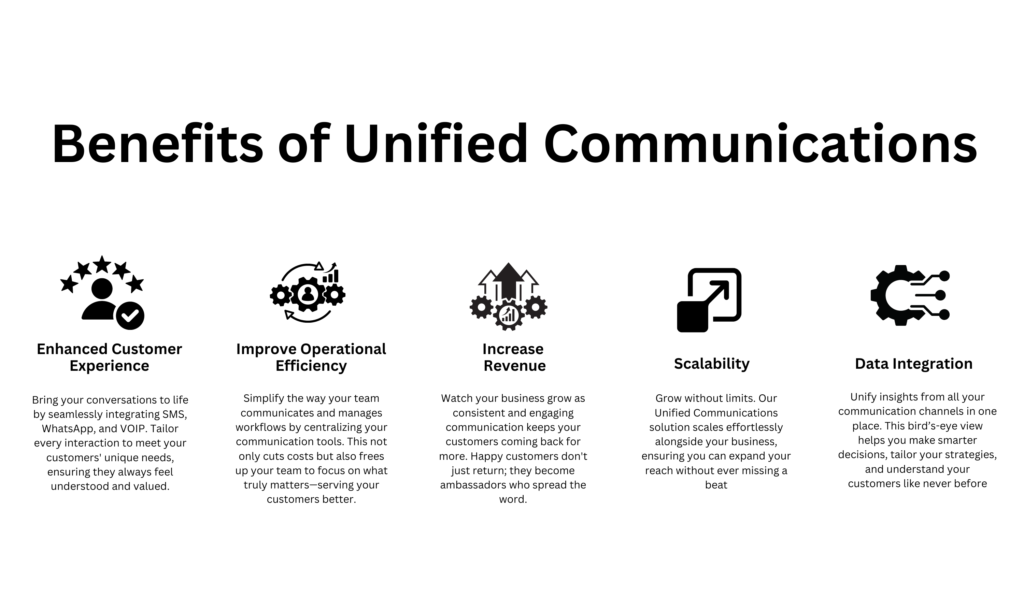
Scalability and Flexibility
As your business grows, so does the complexity of managing customer interactions. A unified system scales with your growth, accommodating more customers and more complex communication patterns without a hitch. Whether you’re adding new services, expanding into new markets, or increasing your customer base, your communication infrastructure can adapt quickly and efficiently.
Real-World Applications and Benefits
Imagine a retail business that uses SMS for sending immediate order confirmations and shipping updates, WhatsApp for customer service inquiries, and VOIP for in-depth product consultations.
This multi-channel approach ensures that customers receive timely, relevant information in the format they prefer, which not only enhances their shopping experience but also streamlines the business’s logistical operations.
Advanced Strategies for Integrating Technologies
Businesses can further enhance customer experience by incorporating advanced strategies such as AI-driven analytics and automated messaging systems. These technologies can predict customer needs, initiate timely communications, and handle routine inquiries, freeing up human agents to tackle more complex issues. For instance, an AI system could analyze customer purchase patterns and automatically send personalized offers via SMS or WhatsApp, followed up by a VOIP call for high-value customers.
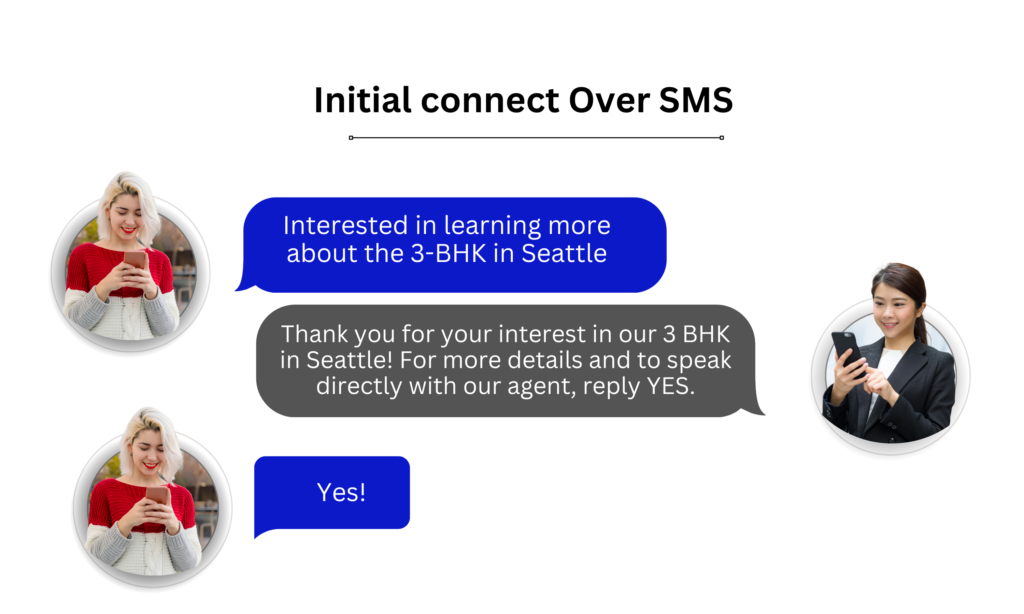
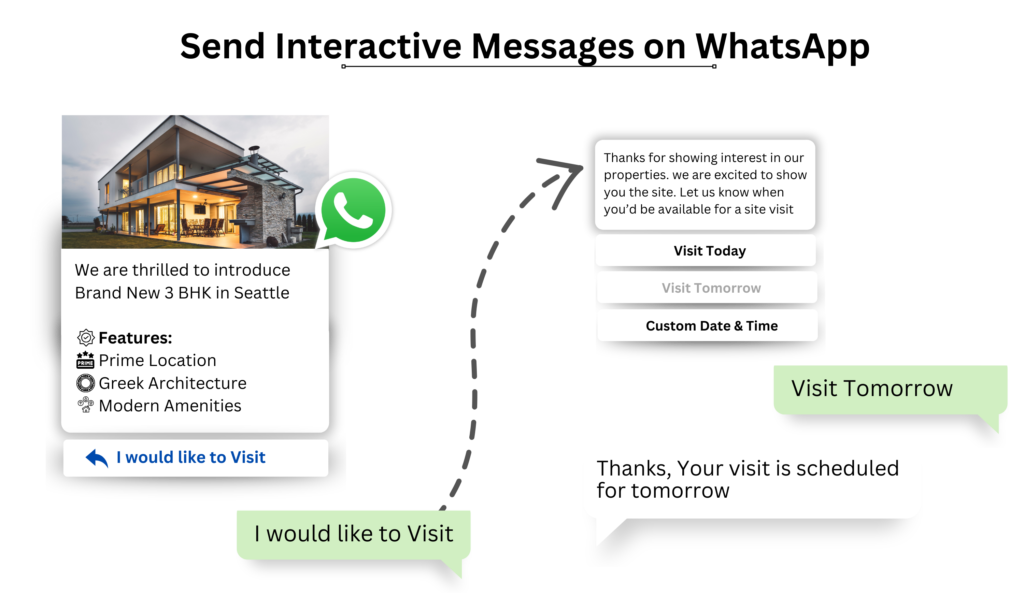
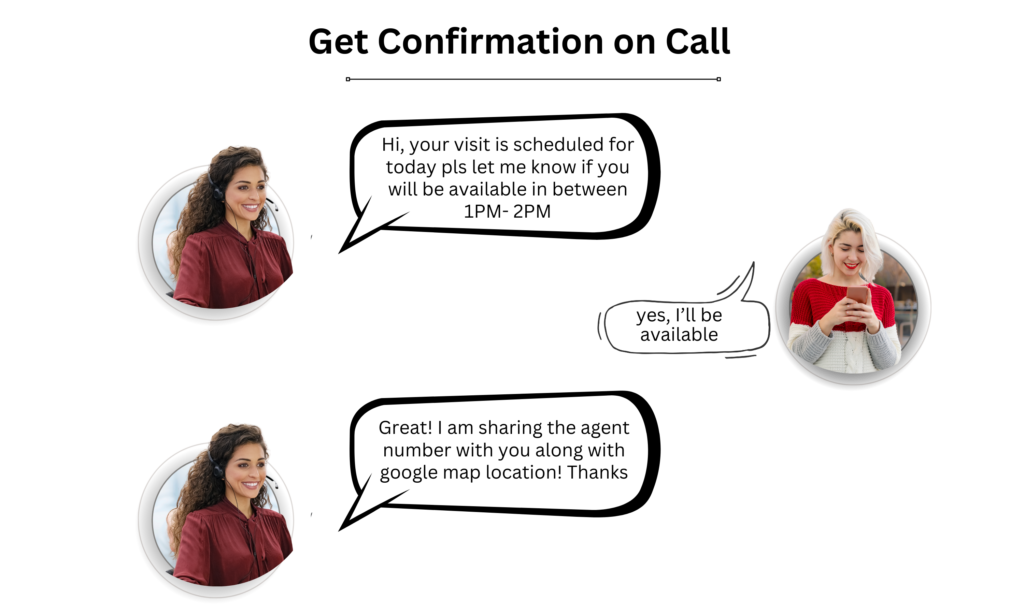
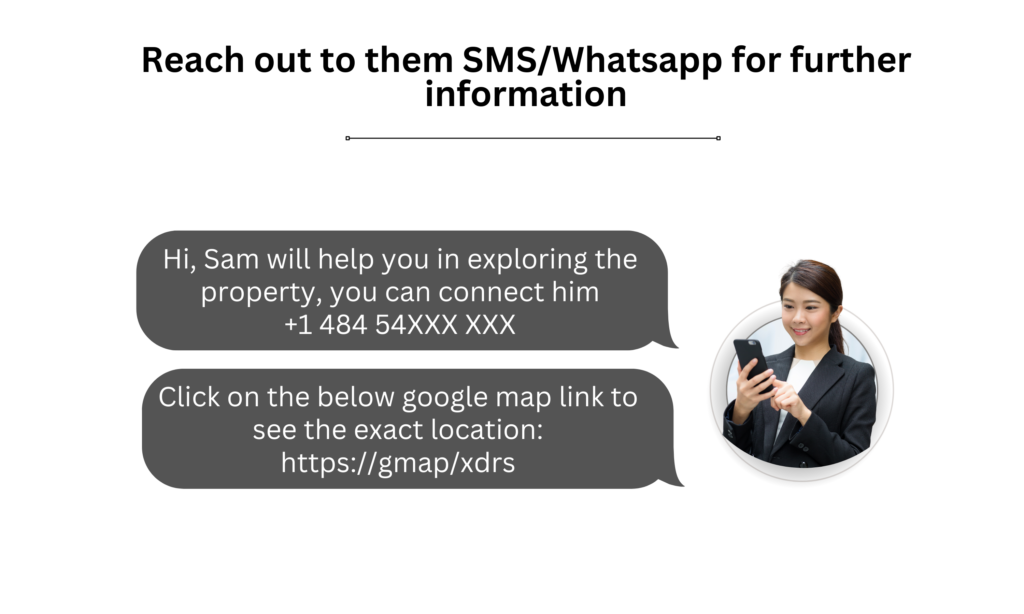
Enhanced Communication Strategies Using Multi-Channel Automation
1. Multi-Channel Trigger-Based Messaging
Strategy Overview:
Develop an automation system that activates specific messages based on customer actions or milestones across SMS, WhatsApp, and VOIP. This system utilizes customer data to automatically send timely and relevant messages.
How it Works:
- Customer Signs Up: Send a welcome SMS and offer the option to receive future notifications on WhatsApp.
- Purchase Made: Follow up with an order confirmation on WhatsApp and an SMS notification when the order ships.
- Customer Support Call Ends: Automatically send a survey via SMS or WhatsApp to gather feedback on the service experience.
2. Integrated Customer Support
Strategy Overview:
Create a seamless support system that allows customers to fluidly move between SMS, WhatsApp, and VOIP, maintaining the context of their inquiries without interruption.
How it Works:
- Initial Contact: A customer inquiry via SMS triggers an automated reply suggesting faster resolution options through WhatsApp or a direct call.
- Escalation: If unresolved via WhatsApp, the system schedules a VOIP call with a support agent.
- Post-Call Follow-Up: Send a summary of the resolution via WhatsApp, including additional help links or contact details.
3. Automated Personalized Campaigns
Strategy Overview:
Leverage customer data to craft and send personalized marketing campaigns via SMS and WhatsApp, complemented by follow-up VOIP calls for high-value opportunities.
How it Works:
- Segmentation: Analyze customer purchase history and preferences to craft targeted messages.
- Personalized Messaging: Dispatch tailored promotions or updates through SMS and WhatsApp.
- Conversion Follow-Up: Employ VOIP to engage high-potential leads who interacted with the messages but did not convert.
4. Seamless Appointment Scheduling and Reminders
Strategy Overview:
Automate the scheduling and reminding of appointments across SMS, WhatsApp, and VOIP to ensure high customer attendance and satisfaction.
How it Works:
- Scheduling: Enable customers to book appointments via linked messages in WhatsApp or SMS.
- Reminders: Dispatch appointment reminders through both SMS and WhatsApp.
- Confirmation: Utilize VOIP calls to confirm or reschedule appointments as needed, automatically updating the CRM system.
5. Real-Time Notifications and Alerts
Strategy Overview:
Establish a system for real-time alerts and notifications about critical updates or required actions, ensuring customers receive these messages on their preferred platform.
How it Works:
- Account Alerts: Instantly notify customers of account changes or suspicious activities via SMS and WhatsApp.
- Urgent Updates: In cases of urgent updates, follow up with a VOIP call if there’s no acknowledgment to SMS or WhatsApp messages within a set timeframe.
6. Feedback Collection and Analysis
Strategy Overview:
Automate the collection and analysis of customer feedback across various communication channels to rapidly adapt and enhance service offerings.
How it Works:
- Post-Interaction Surveys: After any customer interaction, send a feedback survey via SMS or WhatsApp.
- In-Depth Feedback: For comprehensive feedback, schedule a VOIP call to delve deeper into the customer’s experience.
Conclusion:
Implementing advanced automation strategies across SMS, WhatsApp, and VOIP creates a unified communication ecosystem that streamlines interactions and centers them around customer needs, enhancing engagement and satisfaction. These strategies leverage the strengths of different platforms, transforming how businesses communicate.
Adopting unified communications is essential for businesses aiming to thrive in today’s connected world. It meets the expectations of digital-savvy consumers and equips businesses with tools to enhance interactions and drive growth. CRM Messaging is already helping numerous businesses achieve this integration successfully. By using CRM Messaging, your business can also harness these robust capabilities to create a cohesive system that elevates customer interactions and sets you apart as a leader in your industry.






